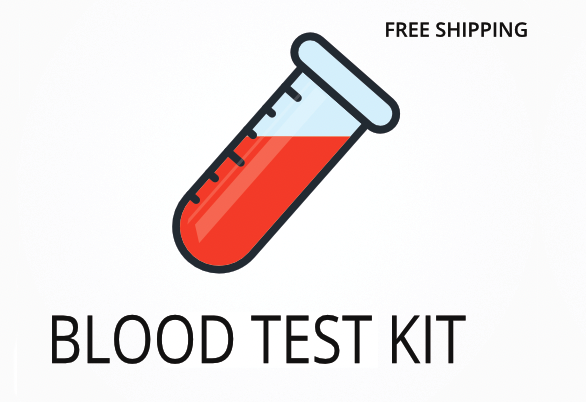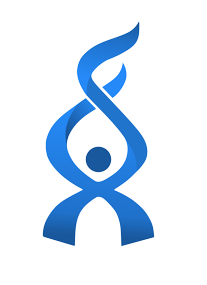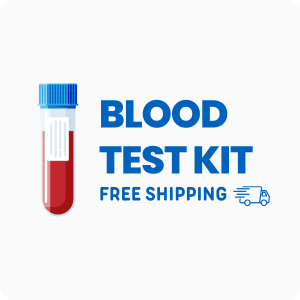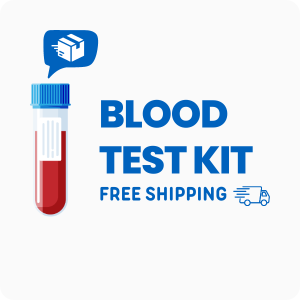Ordering the Thyroid Profile | New York By Doctor’s Data
The Thyroid Profile | New York By Doctor’s Data helps check how well your thyroid is working by measuring thyroid hormones and antibodies in your blood. This test can help find out if you have problems like hypothyroidism, hyperthyroidism, or autoimmune thyroid conditions, which can affect your energy, mood, and body weight. Interestingly, measuring both thyroid hormones and antibodies together can help spot thyroid issues that might be missed if only one type of test is done.
Ordering this test gives you clear answers about your thyroid function and can help your doctor decide if you need treatment or more follow-up. When you order this test, you get:
- Measurement of free T3 and free T4, which are the active thyroid hormones in your body
- TSH levels to see how your brain is signaling your thyroid
- Thyroid antibody checks to help find autoimmune thyroid problems
- Detection of early thyroid changes before symptoms become obvious
- Results that can help guide treatment for symptoms like fatigue, weight changes, or mood swings
Who Should Consider Thyroid Hormone and Antibody Testing
People who feel tired all the time, have trouble losing or gaining weight, or notice changes in their hair or skin may benefit from this test. For example, someone who has been feeling unusually cold, has dry skin, and is losing hair might want to check their thyroid to see if it is working as it should.
Ordering this test may also be helpful in these situations:
- Someone with a family history of thyroid disease
- People with autoimmune conditions like lupus or rheumatoid arthritis
- Women planning a pregnancy or who are pregnant
- People with unexplained changes in cholesterol or heart rhythm
- Someone with osteoporosis, since thyroid problems can affect bone strength
Checking your thyroid can help find the cause of symptoms like tiredness, mood changes, or weight shifts, and can help your doctor decide on the right treatment. Waiting to order this test could mean missing early signs of thyroid problems, which might make symptoms last longer or get worse before you get help.
Preparing for Thyroid Function and Antibody Screening
Fasting is not needed for this test, but always check the test kit instructions for any special steps. Make sure to follow any directions your doctor or healthcare provider gives you, as these can help make sure your sample is collected the right way.
Labs Included When Ordering Your Thyroid Profile | New York By Doctor’s Data
| Test Name | Reference Range | What This Test Measures | Low and High Levels of This Marker |
|---|---|---|---|
| Free T3 | 2.3 – 4.2 | Free T3 is the active form of triiodothyronine, a thyroid hormone that helps control how your body uses energy. It is important for metabolism, heart rate, and temperature control. |
High levels mean your thyroid may be overactive, which can cause symptoms like fast heartbeat, sweating, or weight loss.
Low levels mean your thyroid may be underactive, which can cause tiredness, weight gain, or feeling cold. |
| Free T4 | 0.8 – 1.8 | Free T4 is the main hormone made by the thyroid gland and is needed for energy, growth, and brain function. It is the form of thyroxine that is not bound to proteins in your blood. |
High levels mean your thyroid is making too much hormone, which can cause nervousness, sweating, or trouble sleeping.
Low levels mean your thyroid is not making enough hormone, which can cause tiredness, dry skin, or weight gain. |
| TSH | 0.4 – 4.0 | TSH, or thyroid stimulating hormone, is made by the pituitary gland and tells your thyroid how much hormone to make. It helps keep your thyroid hormones in balance. |
High levels mean your thyroid may be underactive, as your body is trying to make it work harder.
Low levels mean your thyroid may be overactive, as your body is telling it to slow down. |
| Thyroglobulin Antibodies (TGA) | 0 – 4 | Thyroglobulin antibodies are proteins made by your immune system that can attack the thyroid. High levels can show autoimmune thyroid disease, like Hashimoto’s or Graves’. |
High levels mean your immune system may be attacking your thyroid, which can lead to thyroid problems.
Low levels mean there is little or no immune attack on your thyroid. |
| Thyroid Peroxidase Antibodies (TPO) | 0 – 9 | Thyroid peroxidase antibodies are made when your immune system attacks the enzyme that helps make thyroid hormones. High levels are often found in autoimmune thyroid diseases. |
High levels mean your immune system may be causing thyroid inflammation or damage.
Low levels mean there is little or no immune attack on your thyroid enzyme. |
Reference ranges may change slightly over time as labs update their standards, so always check your report for the most current values.
Thyroid Profile | New York By Doctor’s Data FAQ
Is there Thyroid Profile | New York By Doctor’s Data testing near me?
This is a test kit that you can use at a local blood draw site—just check the draw location link at the top of the page. Since thyroid symptoms like tiredness or mood changes can make travel difficult, having a nearby collection site makes it easier to get tested quickly and comfortably.
How do I interpret the test results?
While your doctor should review your results, you can also use our one-on-one test results review service with our clinical team for a detailed explanation and next steps.
What is the cost of the test?
The price you see includes standard shipping to you and back to the lab, but there may be a separate fee for the blood draw. Ordering this test is worth it because finding thyroid problems early can help you start treatment sooner and feel better faster.
How often should I retest?
Most people retest every 6 to 12 months, or as recommended by their doctor, to track changes in thyroid function and adjust treatment if needed. Regular testing helps catch any changes before symptoms get worse.
How accurate is the test?
This test uses chemiluminescent immunoassay and enzyme immunoassay methods, with a specificity of 99% and sensitivity of 98% for thyroid hormones and antibodies. TrueHealthLabs.com partners with CLIA-certified and CAP-certified laboratories to uphold rigorous testing standards for dependable results.
Important Notes
None.
Medical Review Board
Reviewed by Jeff Donohue M.D. from Body Logic and Brady Hurst DC, CCCN. Written by True Health Lab’s team of editorial health contributors.
Disclaimer: This information is for educational purposes only and not intended as medical advice. Consult your healthcare provider for personalized guidance.
Why Customers Trust True Health Labs - What People are saying
Also rated 4.6 out of 5 based on 3452 ShopperApproved reviews- See all TrueHealthLabs.com reviews.









